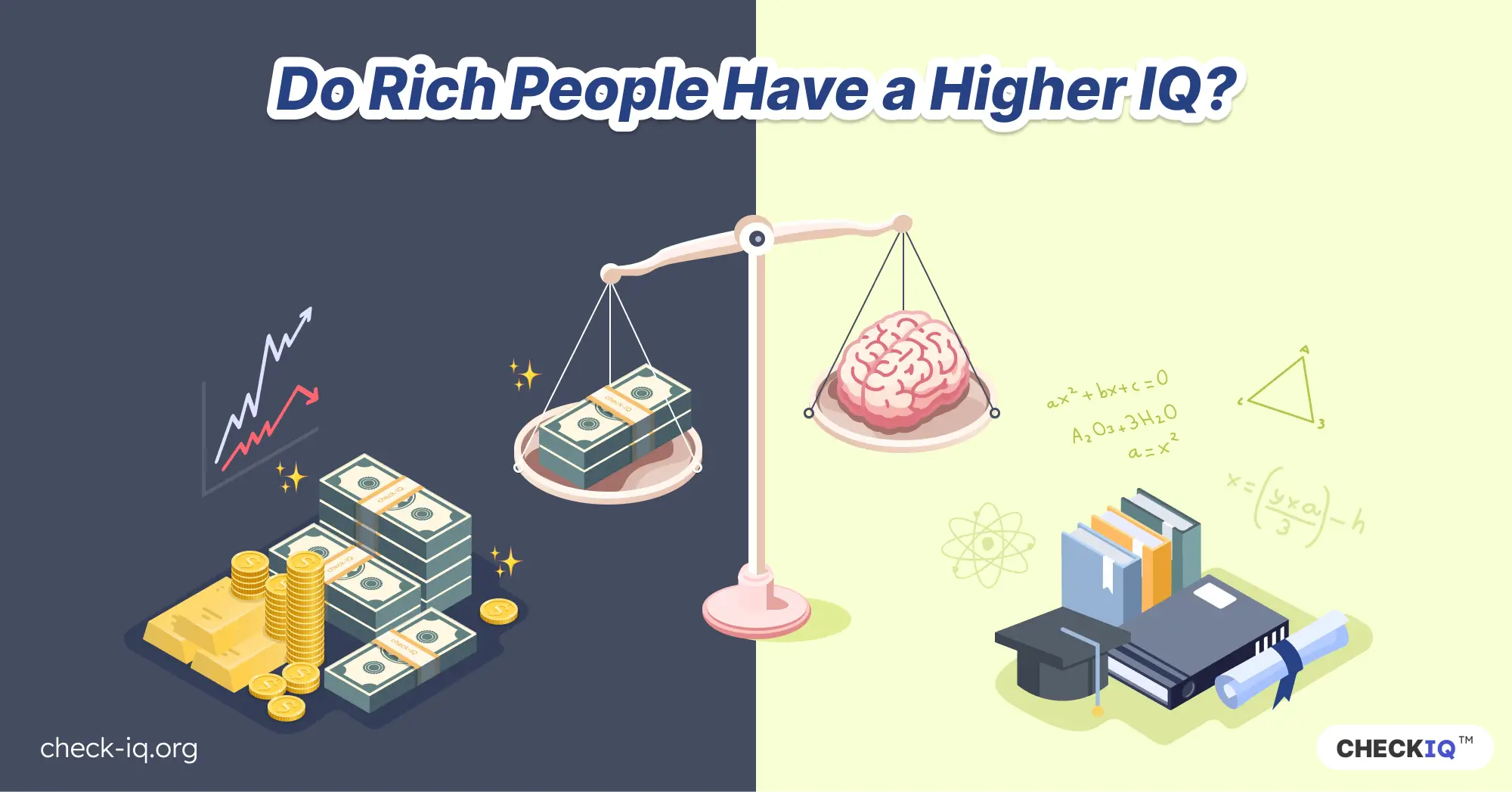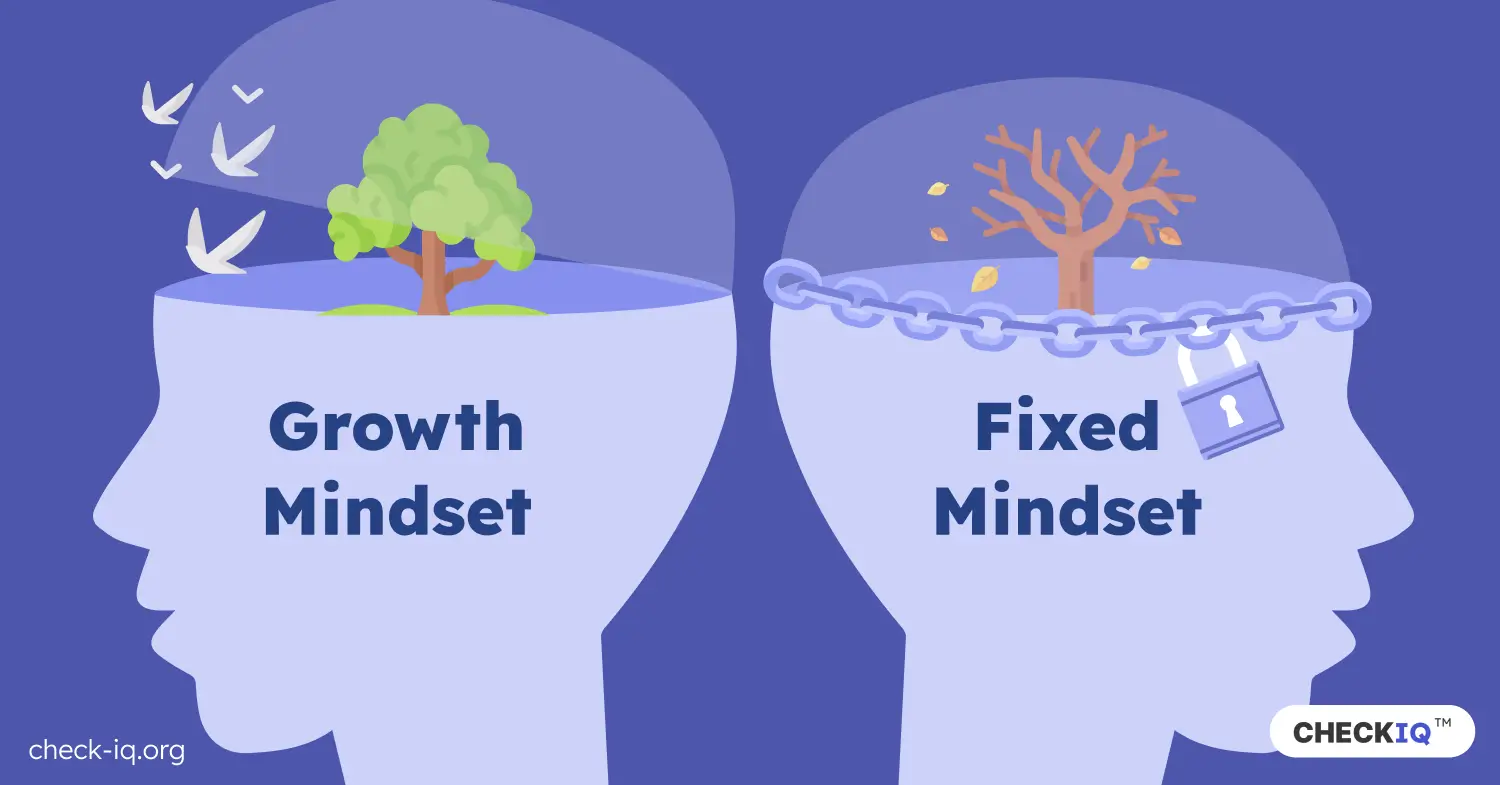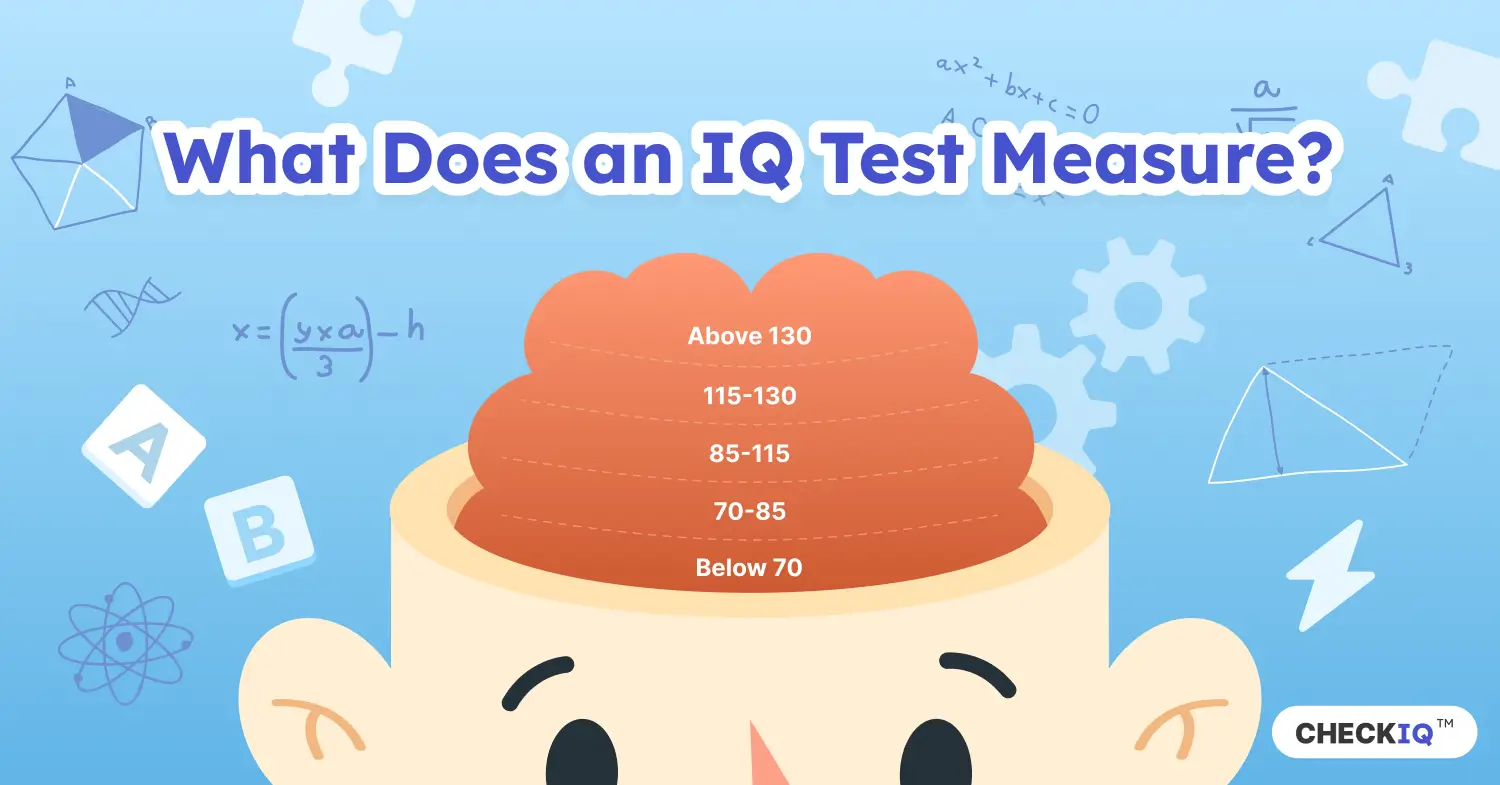Many of us tend to assume that you have to be smarter than most to achieve financial success. This belief is so pervasive that it fuels entire industries, from motivational speaking to self-help literature. Entrepreneurs and personal development gurus often capitalize on this misconception, churning out bestsellers that promise a future as bright as the author's, provided you follow their rules meticulously. Ironically, much of these authors' wealth often stems from their book sales rather than from successful business ventures or high-paying jobs, illustrating a paradox in the relationship between intelligence and wealth.
But why does this idea remain so convincing today? Is being rich a sign of high IQ? In other words, is there a tangible link between high IQ and financial success, or are other factors at play?
Let’s see together:
1. What's the Link Between IQ and Wealth?
Just because someone is wealthy doesn't necessarily mean they're also intelligent, and vice versa.
Here’s why:
Do wealthy people have higher IQs on average?
When you look into the income data, a pattern seems to emerge: on average, wealthy people often showcase a higher IQ. But is this a simple coincidence, or might there be a deeper connection between affluence and brainpower?
Various research studies have noted a positive correlation between wealth and cognitive ability. However, it's vital to be cautious when drawing conclusions.
As pointed out by Greg Mankiw, a Harvard University professor, correlating wealth with intelligence can be like comparing the number of bathrooms in a home to the success of its dwellers - there might be other factors at play, such as the intelligence of their parents, which aren’t as apparent.
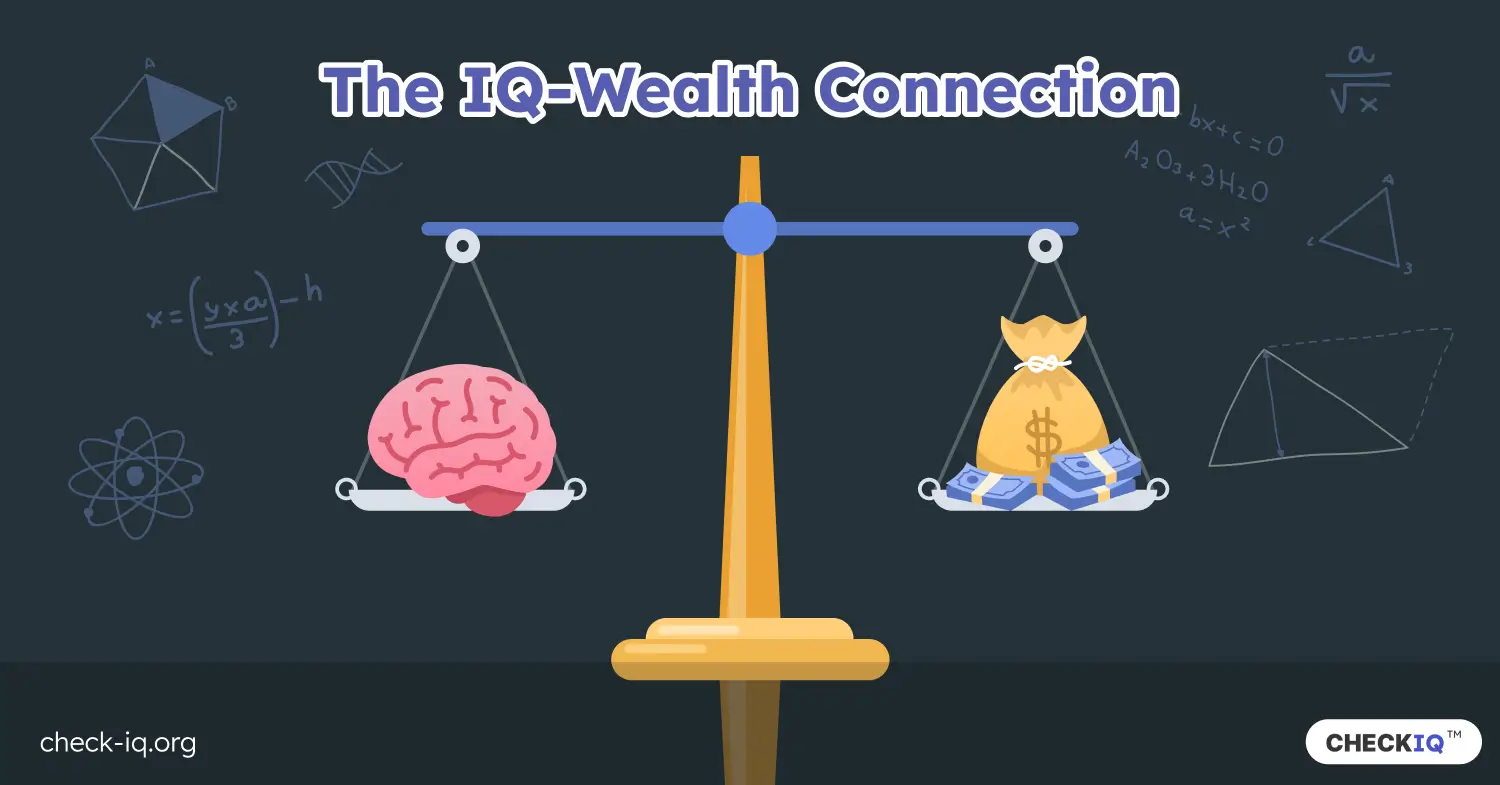
A reliable 100% adaptive online IQ Test. Get your IQ score immediately.
Start My IQ Test
Can wealth increase one's IQ?
On the flip side, you might ask if having more money can actually make you smarter.
While wealth might not directly amplify your cognitive capabilities, the advantages it provides – such as access to higher-quality education, healthcare, and nutrition – can create a favorable environment for sharpening your intellect, as reported by researchers from the University of Michigan.
These benefits, while not impacting the innate ability, may give someone the upper hand when performing on intelligence tests or tackling complex challenges.
How do education and networking influence IQ and wealth?
Education plays a pivotal role in developing our cognitive skills. Studies have shown that additional years of schooling can lead to modest gains in IQ levels, suggesting that education can indeed have a causal effect on our intelligence. Additionally, your mindset can have an impact on your intelligence: a growth mindset – the belief that intelligence can be developed through dedication and hard work – significantly affects how much individuals benefit from educational opportunities.
But the link between education and wealth doesn't stop at just book smarts – the relationships and networks you build along your educational journey often open doors to opportunities that can lead to financial success.
With more knowledge and a broader network, you're better equipped to climb the socioeconomic ladder, turning intelligence and education into powerful tools for building wealth.
2. What Factors Affect the Relationship Between IQ and Wealth?
From stress and career choices to generational wealth, several factors can impact the relationship between IQ and financial success:
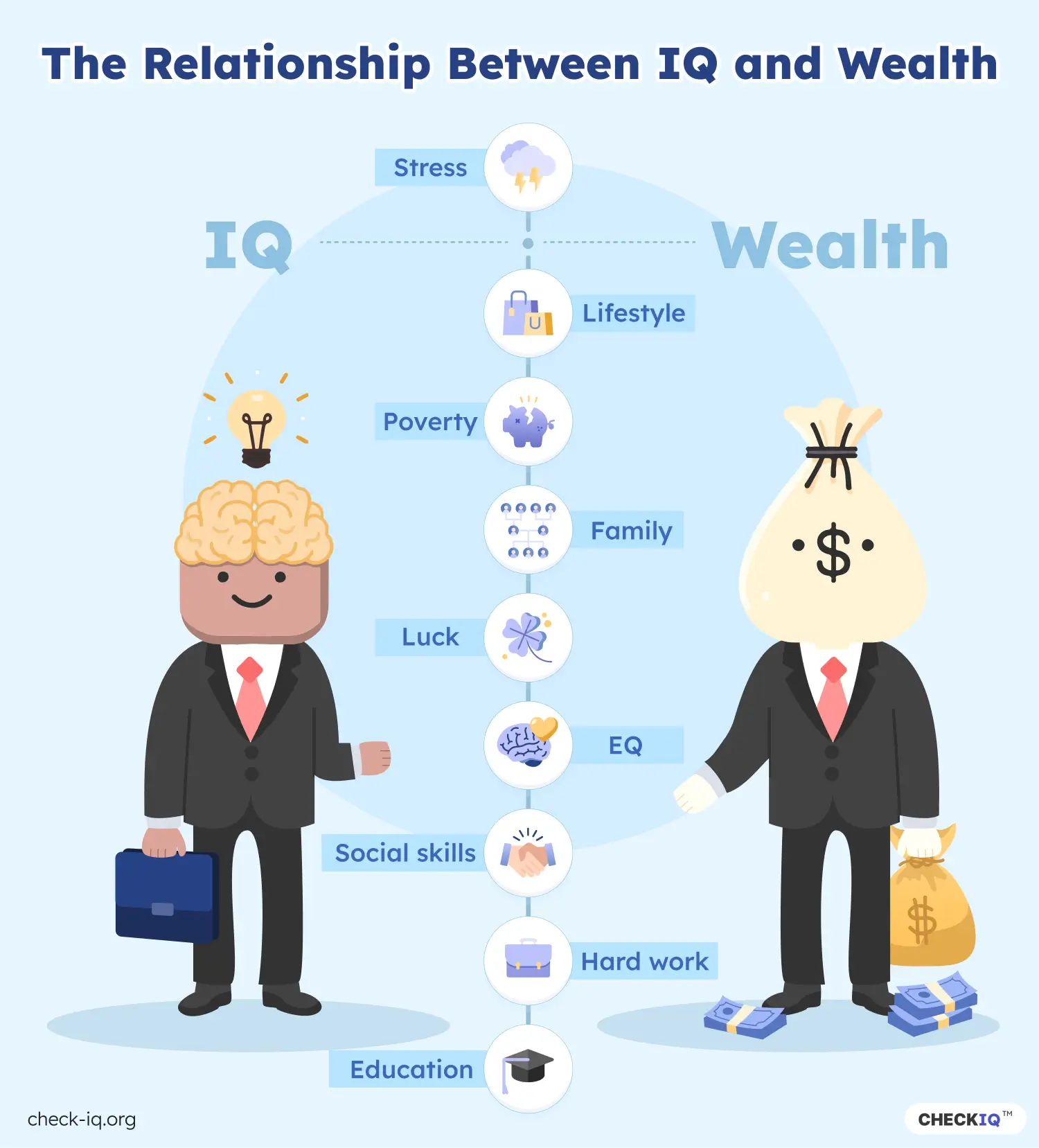
Is it all about IQ?: the impact of stress, lifestyle, and poverty
You may think a high IQ is your golden ticket to a hefty salary and a plush office, but there’s more to the story. Stress and lifestyle choices can have a profound effect on both your bank account and your brain.
Intelligent people, whether from affluent backgrounds or not, might face stressors that can dampen their cognitive function. Prolonged periods of high stress may impair both fluid intelligence, which is your ability to solve new problems, and crystallized intelligence, which is your accumulated knowledge.
For earners at every level, maintaining a healthy lifestyle is crucial.
While abundant wealth can help individuals afford better living conditions, healthcare, and more leisure time, all contributing positively to cognitive performance, it may sometimes not be enough to achieve mental and emotional well-being.
Conversely, poor people are often at the mercy of their environment, facing challenges that can affect their ability to focus and excel in mentally demanding tasks. Even more, growing up in poverty can drastically impact your brain development and, implicitly, your measurable intelligence.
Research from Princeton University highlights how poverty not only imposes a cognitive load that can affect decision-making, but can also be so consuming that it leaves little mental energy for other necessary tasks, effectively lowering cognitive function like losing an entire night's sleep. This diminished cognitive capacity can often mimic signs of low IQ, misleadingly attributing poor performance and decision-making solely to intelligence levels rather than the taxing effects of poverty.
Luck and skills beyond intelligence: what else contributes to wealth?
Recent research published in Oxford Academy suggests that, at the very pinnacle of income brackets, the relationship between IQ and earnings starts to blur. The top earners do not necessarily have higher cognitive ability than those a rung lower on the wealth ladder – indicating that factors such as family resources can play monumental roles.
Moreover, MIT Technology Review discusses a study where it was demonstrated that, across fields, success might boil down to luck far more than previously thought. These findings challenge the narrative that wealth is predominantly the fruit of talent and hard work. Luck, along with emotional intelligence, social skills, and sheer timing, can dramatically sway one’s financial trajectory.
For someone with a high IQ, it might seem like certain jobs and salaries are a natural fit. But researchers suggest this isn't always true. Other skills, like emotional intelligence, networking, and even luck, can sometimes be more important than raw intelligence for earning money.
Considering how many variables impact both wealth and intelligence, it’s safe to say that the relationship between the two is highly dependent on other factors.
3. FAQs on IQ and Wealth
Does a high IQ guarantee a high income?
You might think that having a high IQ opens the door to wealth, but it's not a guarantee. Intelligence, no doubt, plays a role in problem-solving and can help you excel in cognitive tests, which may lead to better job opportunities and therefore, an impressive salary.

Studies show that those with higher intelligence are often among the top earners; however, income is a multifaceted issue. As Investopedia details, tremendous wage disparities exist, and simply having a high IQ isn't enough to ensure you reach that top 1% of earners.
Is a high IQ necessary to accumulate wealth?
While having a high IQ can certainly help, it's not an absolute necessity for accumulating wealth. Research by psychologist John Antonakis reaffirms that a higher IQ can predict better work performance and potentially greater earnings.
However, many other factors contribute to gaining wealth, including personality traits like confidence, being outgoing, and possessing strong organizational skills. The reality is that intelligence tests are just one measurement of ability, and having a high IQ doesn't singlehandedly equip you with all the tools needed for financial success.
When is IQ irrelevant to earnings?
High intelligence can often set you apart in low to mid-tier jobs, but as you move up the ranks, the difference in IQ levels among top earners is much less pronounced. There might even be cases where having an extremely high IQ – much beyond the norm – could present challenges, such as difficulties in relating with others or tackling certain leadership perceptions.
Emotional intelligence is often seen as equally important as IQ in achieving success. Antonakis emphasizes that effective communication and emotional intelligence are key, especially for those in leadership, to connect and lead successfully.
Remember that success doesn't hinge solely on your IQ – it's also how you use it and combine it with other personal attributes that shape your journey and help you make your mark.

